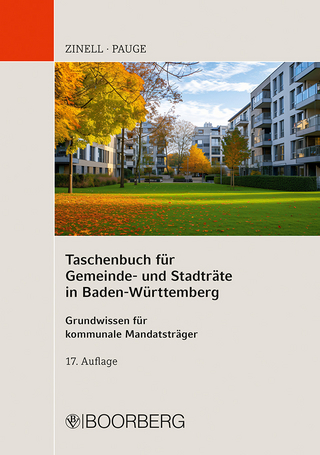
Fiscal Policy and the Natural Resources Curse
Routledge (Verlag)
978-0-367-11079-6 (ISBN)
- Titel z.Zt. nicht lieferbar
- Versandkostenfrei innerhalb Deutschlands
- Auch auf Rechnung
- Verfügbarkeit in der Filiale vor Ort prüfen
- Artikel merken
Fiscal Policy and the Natural Resources Curse re-examines this ancient, unsolved puzzle, asking why many governments of natural resource-intensive countries are incapable, in a globalised world, of dealing with the natural-resource curse. This book offers a detailed analysis of the power-relationships which underpin the natural resource curse, using both statistical analysis and country case studies from Africa and Latin America to pinpoint the strategies that have enable developing countries to break out of the poverty trap. The book differs from other works on this subject, as it not only identifies the issues at stake but also offers solutions in the form of a series of suggested policy measures. The work focusses in particular on fiscal escape routes, namely measures to develop and diversify the tax system, and to reallocate and target public expenditure.
This volume will be of great interest to scholars of economic development, the economics of natural resources and economic growth as well as all those with an interest in development, global politics and anti-poverty policies.
Paul Mosley is a development economist with strong interests in politics and the welfare state. He has held professorial chairs at the universities of Manchester and Reading, and is currently Professor of Economics at the University of Sheffield, UK.
Contents
List of Figures
List of Tables
Preface
List of Abbreviations
Introduction
The way forward: how do ‘inclusive’ alliances happen?
1. Analytic framework
2. Case studies of resource-intensive countries:
i. The classic comparison: Nigeria vs. Indonesia revisited
ii. Other ‘strategic alliances’: Chile, Botswana, Ghana and Bolivia
iii. Other rentier-dominated states: Venezuela and Zambia
3. Summary and conclusion
The fiscal politics of mineral development in Ghana
1. Introduction: political settlements and their economic consequences prior to the 1980s
2. Transformation of the tax structure: political and economic drivers, 1981-2015
3. The politics of public expenditure allocation and poverty in Ghana
4. Mining, technical rigidity and poverty
5. Can Ghana be seen as a ‘proto-developmental state’
Zambia: democratization without a ‘social dividend’?
1. Introduction
2. The political and economic background to 2006
3. Neoliberalism challenged: the evolution of the political bargain and of tax policy 2006-2015
4. The public finance bargain and welfare outcomes
Bolivia: a ‘hybrid’ political economy?
1. Introduction
2. The political and economic background to 2003
3. Neoliberalism challenged: the evolution of the political bargain and of tax policy 2005-2014
4. Public expenditure, social policies and poverty
5. Politics, fiscal policy and political stability
6. Summing-up and longer-term challenges for policy
Appendix: Survey results
The politics of inclusive fiscal policy
1. The basic story
2. Drivers of tax revenue, competitiveness and poverty trends
3. Testing the model
4. Conclusions
Conclusion: How can mineral-rich countries create ‘developmental states’?
1. The politics of ‘developmental states’
2. Export diversification: what distinguishes the successful cases?
3. Concluding thoughts: what can these ideas do for the poorest?
Bibliography
Index
| Erscheinungsdatum | 01.11.2018 |
|---|---|
| Reihe/Serie | Routledge Studies in Development Economics |
| Zusatzinfo | 34 Tables, black and white; 18 Line drawings, black and white; 5 Halftones, black and white; 23 Illustrations, black and white |
| Verlagsort | London |
| Sprache | englisch |
| Maße | 156 x 234 mm |
| Gewicht | 490 g |
| Themenwelt | Naturwissenschaften |
| Sozialwissenschaften ► Politik / Verwaltung ► Staat / Verwaltung | |
| Wirtschaft ► Betriebswirtschaft / Management ► Rechnungswesen / Bilanzen | |
| Wirtschaft ► Volkswirtschaftslehre | |
| ISBN-10 | 0-367-11079-2 / 0367110792 |
| ISBN-13 | 978-0-367-11079-6 / 9780367110796 |
| Zustand | Neuware |
| Haben Sie eine Frage zum Produkt? |
aus dem Bereich


